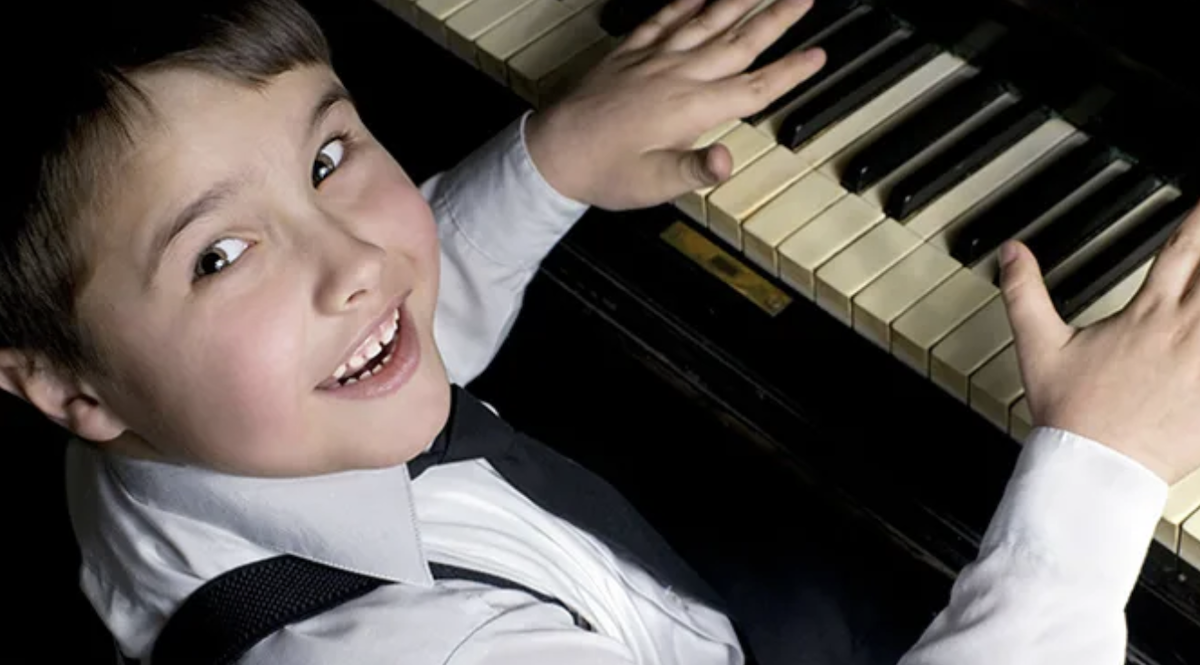The piano is, by far, one of the most popular choices for the first instrument. Firstly, it’s pretty much one of the easiest ones to start with, as everything on it is “laid out” and it’s pretty easy to make any sound out of it. Secondly, it’s a very popular choice due to its sound and reputation among musicians of all genres. Whether it’s a piano or any keyboard-based instrument, you’ll find that in both softer and heavier music. The piano as we know it has been here for quite a while, since the 18th century. And it’s going to stay with us for a very long time. But let’s focus on another topic: piano and brain development.
What we’re interested here is how learning to play this instrument affects an individual’s brain and personal development. At first, learning how to play an instrument might be dismissed as something trivial, even redundant to some. Learning how to play it provides you with nothing more than just simple leisure activity, right? Well, there’s a lot more to it than you might think. Here we will explain how exactly can you benefit from it. So let’s get into it.
Divided attention
The concept of divided attention, or so-called “split concentration,” is one of the main aspects of playing an instrument like the piano. Obviously, in order to play it, you need to use both hands, and even your feet to some extent when using the pedals. This is actually a lot of complex tasks you need to do at once. Not to mention all of the intricate and complex polyrhythmic patterns that you’ll have to master.
Expectedly, learning how to play the piano will only improve your multitasking abilities. And that’s more than beneficial for all walks of life.

Neuroplasticity
Brain plasticity, or neuroplasticity, is your brain’s ability to adapt and change throughout an individual’s life. It can reorganize many of its synaptic connections, which is something that occurs as a response to an intense learning activity. The piano is a great way to stimulate your brain in this regard. As a result, you’ll be able to enhance your brain to become more adaptable and “flexible.” This is useful in a variety of aspects of your life.
When you learn new music on the piano, and when you try hard to memorize all its parts, you’re making new neural connections. Your brain then develops in such a way, which can then benefit skills other than just playing the instrument. This includes memory, speech, attention, and even expressing your emotions verbally.
All of this is extremely beneficial at an early age. The earlier one starts playing the piano, the more they’ll have the chance to develop their neuroplasticity.
Enhancement of motor skills and other physical benefits
Like we already mentioned, the piano engages both of your hands, and in some cases even your feet. Such a complex set of tasks is quite beneficial for the development of motor skills. Hand-to-eye coordination is crucial for playing such an instrument. Needless to say, this is something that transfers to all the other fields in life.
What’s also worth noting is that some even claim that learning how to play the piano can benefit one’s physical health. You can even sort out your blood pressure to some extent, thanks to its calming effect.
Piano Brain Development: Emotional benefits
It’s pretty obvious that music is one of the greatest forms of expression. It helps us express our innermost emotions without using words, but rather notes. This gives a whole new aspect of one’s personality. When learning to perform certain pieces, you get engaged and learn what they’re actually trying to convey. And all this is especially pronounced when you start making your own music or improvised sections. This way, you’re directly involved with your emotions. As a result, you may develop more empathy and understanding for others.
Learning how to cope with competition and criticism
When learning a new skill, you will, sooner or later, stumble upon competition. Someone else will also be at your level, and you’ll be at each other’s throats. However, learning to play an instrument and comparing yourselves to others can eventually lead to healthy competition. Instead of envy and anger, you’ll start feeling enthusiasm and even comradery with other musicians. This is one of the keys to how you can advance not only as a musician but in any specific field in life.
Another thing to consider is criticism. You may or may not like it, but you’ll stumble upon it sooner or later. Someone will just think that your performance is just not good enough. It’s up to you to know how to deal with it and channel this energy into becoming better at it. Just like with healthy competition, this also provides benefits in all other things in life that you do.
Piano Brain Development: Conclusion
The piano is not like other instruments. While we can say this about almost any instrument out there, learning the piano clearly brings a lot of benefits. What’s more, it’s pretty easy to learn basic stuff on it, making it a great choice for absolute beginners. Figuring out the basic music theory concepts on it is pretty easy due to its nature.
To put it simply, we can only find benefits from learning an instrument like the piano. So in case you’re wondering whether to give it a try or not; there’s no need to think – you just can’t go wrong with it.